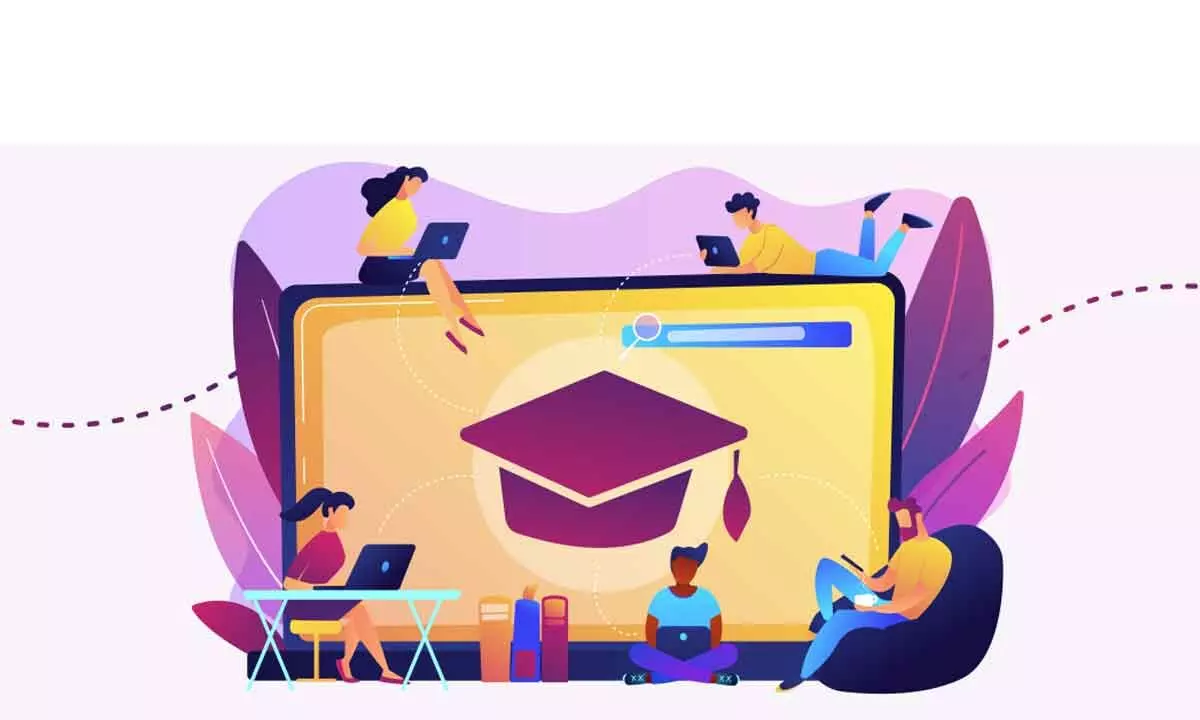Revolutionising education through entrepreneurial empowerment

In the ever-evolving landscape of education, a significant shift is occurring—a departure from traditional academics towards a pivotal focus on instilling an entrepreneurial mindset in students. As we navigate this transformative journey, the crucial significance of embedding entrepreneurial skills and financial literacy at the outset of students' educational paths becomes increasingly apparent.
Entrepreneurship once considered an adult pursuit, now claims a spotlight in contemporary educational philosophies. Beyond imparting practical life skills, nurturing an entrepreneurial spirit from a young age fosters innovation and resilience—qualities indispensable for navigating the uncertainties shaping our collective future.
Entrepreneurship education in schools adopts a comprehensive approach, equipping students with the knowledge, skills, and mindset essential for success in the entrepreneurial realm. This educational journey spans various dimensions, including ideation, research, business planning, financial management, marketing, and networking. Progressing from awareness and exploration to skill development, idea validation, business plan execution, and eventual growth and sustainability, students embark on a transformative educational expedition.
To enhance traditional classroom learning, schools can seamlessly integrate immersive experiences into their curriculum, guiding students through the entrepreneurial process. These experiences unlock creative potential and instill a profound understanding of the fundamentals. Real-world exposure, facilitated by vocational programs and interactions with industry experts, further enriches students' comprehension of entrepreneurship.
Recognizing the transformative power of entrepreneurship in shaping future leaders and innovators, I suggest an eight-step framework that empowers students to explore, ideate, and implement their entrepreneurial ideas:
Inspiring the success mindset
At the core of this approach lies the cultivation of empathy, resilience and problem-solving skills. Encouraging students to keenly observe their surroundings, identify real-world challenges, and foster a deep understanding of the issues they are passionate about addressing is essential.
Igniting creativity through idea generation
The structured approach to idea generation involves targeted brainstorming sessions designed to spark innovation and creativity. Providing a platform for students to refine their entrepreneurial concepts aims to instil confidence and enthusiasm in their ability to turn ideas into reality.
Creating a collaborative space
Establishing a dedicated Student Entrepreneur club or team within the institution is crucial to facilitating the exchange of ideas and fostering collaboration. This space serves as a vibrant ecosystem where students can share, develop, and work on their entrepreneurial projects, creating a dynamic environment that fuels creativity and innovation.
Empowering students with entrepreneurial methodologies
Recognizing the importance of practical skills, the framework suggests that schools should provide students with specialized training in essential entrepreneurial methodologies. This ensures that they possess the knowledge, skills, and tools required to successfully navigate the challenges of implementing their ideas.
Guidance through mentorship and advisory network
The commitment to student success extends to connecting them with experienced mentors and advisors. This network offers invaluable insights, expertise, and networking opportunities, guiding students through their entrepreneurial journey and enhancing their chances of success.
Strategic partnerships for awareness and exposure
The framework emphasizes collaboration with external entrepreneurial organisations, industry experts, and professionals to enrich the educational experience for students. These partnerships expose them to real-world perspectives, resources, and networking opportunities, bridging the gap between classroom learning and practical application.
Empowering financial independence
Understanding the financial aspects of entrepreneurship is crucial, and the schools should guide funding options. This empowers students to secure grants, sponsorships, or venture capital, ensuring that their entrepreneurial dreams are not limited by resource constraints.
Reflection and steps for improvement
This aspect of the framework revolves around introspection and refinement. Assessing the impact of initiatives, seeking feedback, and analyzing key metrics are essential steps. Celebrating successes, identifying areas for improvement, and adjusting the curriculum ensure continuous enhancement. The significance of entrepreneurship education transcends the cultivation of future business leaders; it extends to instilling a sense of social responsibility. This facet of education goes beyond textbooks, shaping a generation of leaders not only academically proficient but also endowed with the adaptability and innovation crucial for thriving in an ever-changing global landscape.








